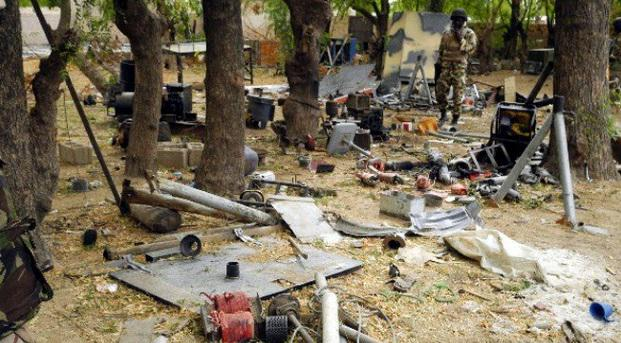By Olusegun Emmanuel, Abuja.
The federal government have been urged to scrap the States Independent Electoral Commission (SIEC) and transfer its obligations to Independent National Electoral Commission (INEC).
Delegates at the ongoing National Conference in Abuja who made the call Tuesday argued that the commission at that level has outlived its usefulness and has become a tool for governors to manipulate elections into local government councils.
The Conference also adopted a proposal for the review of the Electoral Act to further strengthen INEC`s capacity to effectively monitor party conventions.
In addition, Conference delegates set the minimum academic qualification for candidates seeking elective positions. For the position of the President, Governor and National Assembly candidates, the mandatory qualification is, first degree or its equivalent.
Candidates seeking to contest for States Houses of Assembly and Local Government Chairmanship elections are also expected to posses a first degree certificate or its equivalent while Secondary School Leaving Certificate or its equivalent was set as the minimum academic qualification for candidates seeking election as local government councilors.
These resolutions were part of the recommendations adopted during the debate and consideration of report of the Committee on Political Parties and Electoral Matters headed by the duo of Senator Iyorchia Ayu and Senator Ken Nnamani, both former Presidents of the Senate of the Federal Republic of Nigeria.
Conference also accepted a recommendation for the establishment of a Political Parties Regulation and Electoral Offences Commission to be vested with various responsibilities connected with electoral matters.
Among the responsibilities of the Commission would be to investigate all electoral frauds and related offences; identify, trace and prosecute political thuggery; and other electoral offences as well as monitor the organization and operations of political parties, including their finances.
Conference also resolved that appeals from judgments in pre-election matters to the Court of Appeal or the Supreme Court should be filed within 21 days from the date the judgment of the lower court is delivered.
Conference, after an exhaustive debate, also accepted the recommendation that the Evidence Act be amended to shift the burden of proof in election matters to INEC.
Still on election litigation, Conference agreed that relevant provisions be made in the Electoral Act to ensure that no elected official is sworn in until all litigations on the elections are concluded.
In addition, it agreed that any candidate adjudged by the courts to have been fraudulent in the electoral process should not only be barred from subsequent elections but should be disqualified from vying for any elective office or holding any government position for ten years.
It was also resolved that in addition any person removed from office, based on the decision of the court on fraudulent election, must lose all privileges attached to that office.
Another resolution was that if a candidate is disqualified by the court for not meeting the required qualification for contesting an election, or in situation where such a person is elected and the court orders him to vacate the office, the candidate with the second highest number of votes should be declared winner.
On the appointment of INEC chairman, Conference accepted the recommendation of the Justice Mohammed Uwais Report regarding the manner of appointing the INEC chairman.
Conference also accepted the Committee’s recommendation that any elected officials, executive or legislative who engages in cross-carpeting, regardless of the reasons for such, shall automatically forfeit his or her seat.
This provision, it said, shall not relate to cases where political parties merge to become a mega party. In such a case, Conference agreed that elected officials should have a choice to freely choose any political party they want to belong.
However, it was agreed that elected officers whose political parties, on whose platform they won election, later merge with other political parties after the elections should be allowed to retain their seats.













